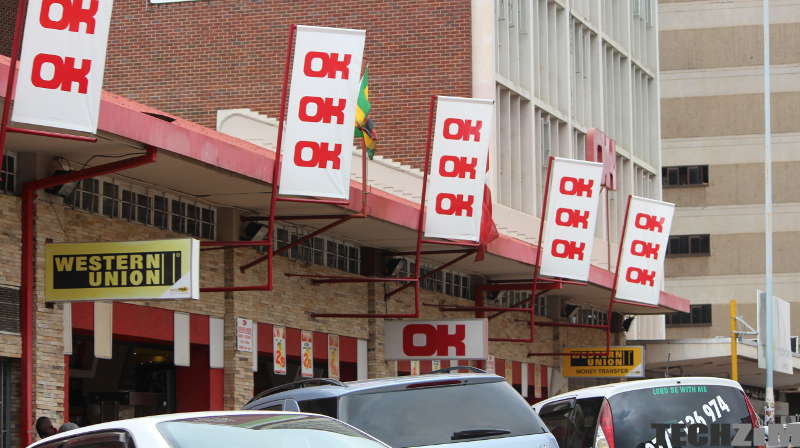TAKUDZWA HILLARY CHIWANZA
Zimbabwe's formal retail sector is struggling to survive as informal traders, who operate outside the tax system and accept only U.S. dollars, lure away customers with cheaper goods and better service.
One of the country's largest retail chains, OK Zimbabwe, has described the situation as the "forced death" of Zimbabwe's supermarkets, which are full of goods but low on customers.
The shoppers are flocking to the "tuck shops", small informal shops that have mushroomed across the country and now dominate the retail space.
The tuck shop owners can afford to sell their goods at lower prices because they do not pay taxes, rates, or other regulatory fees. They also source their products directly from manufacturers and suppliers, who prefer to deal with them because they offer upfront U.S. dollar payments.
Larger supermarkets, on the other hand, are forced by the government to price their stock using the official exchange rate, which is much lower than the parallel market rate. They also have to contend with high operating costs, delayed payments, and currency depreciation.
This has made their goods more expensive and less attractive to consumers, who are facing a deepening economic crisis marked by high inflation, low incomes, and chronic shortages of cash, fuel, and electricity.
According to OK Zimbabwe, which has over 60 outlets nationwide, most formal retailers are battling for survival.
"It has been an interesting watch as perhaps most formal retailers now are battling for survival. The rise of the unregulated informal operators, who are mostly arbitraging, has caused more headaches than good for the formal guys like OK Zimbabwe, TM Pick n Pay, Gain Cash & Carry and so many more. This has created a whole new spate of dangerously unhealthy competition," OK Zimbabwe said in a press advertorial for its "DollarDeal" promotion.
The promotion seeks to drive sales by offering customers bargain deals for U.S. $1.
OK's latest financial results are highly anticipated, as they will provide a window into the state of Zimbabwe's formal retailers. The results were due in June but will be published later this week. OK cited challenges relating to its migration to a new Enterprise Resource Planning System which delayed the year-end external audit.

















.jpg)






.jpg)
0 Comments